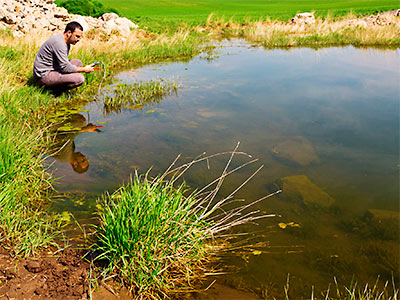
Overview
The Environmental Science Program at TMCC prepares students for continued education in environmental sciences, or future careers in private consulting firms, industries, non-profit organizations, higher education, and government agencies.
This program supports not only TMCC degrees in the physical sciences but also the general education program. Over 100,000 job opportunities are created each year in the field of environmental sciences. These opportunities are in the fields of environmental science, environmental chemistry, environmental engineering, environmental consultancy, environmental education, air and water quality management, solid waste management, hazardous waste management, parks and outdoor recreation, urban and rural land-use planning, land conservation, water conservation, computer modeling, geographical information systems (GIS), forestry, planning and energy, environmental journalism, and environmental law.
Why Choose Environmental Science at TMCC?
Choosing to major in Environmental Science at TMCC will provide you with many advantages, including:
- The first two years towards a bachelor’s degree in Environmental Science at most major universities, including a seamless transfer to the Environmental Science programs at UNR.
- Small classes are limited to 28–32 students with both lectures and labs taught by the same instructor so you get the support you need to be successful.
What Will I Study
At TMCC students in Environmental Science will study the earth’s natural systems, biodiversity, wildlife management, pollution, and many other aspects of how humans interact with nature. If you graduate with the Associate of Science (AS) degree in Environmental Science from TMCC, you can start at junior status at UNR in the Environmental Science program. You will also be prepared to transfer in as a junior at most major universities.
College Catalog Information
Check out additional Degree and Certificate information, including Recommended Course Schedule, Program Requirements and Program Outcomes.
Career Paths
- Environmental Scientist
- Natural Resource Manager
- Environmental Technician
- Wildlife Biologist
- Environmental Consultant
- Air Pollution Analyst
- Recycling Officer
- Environmental Educator
- Natural Conservationist






